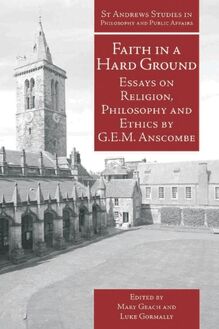Philosophy of Punishment , livre ebook
136
pages
English
Ebooks
2012
Vous pourrez modifier la taille du texte de cet ouvrage
Obtenez un accès à la bibliothèque pour le consulter en ligne En savoir plus
Découvre YouScribe en t'inscrivant gratuitement
Découvre YouScribe en t'inscrivant gratuitement
136
pages
English
Ebooks
2012
Vous pourrez modifier la taille du texte de cet ouvrage
Obtenez un accès à la bibliothèque pour le consulter en ligne En savoir plus
Publié par
Date de parution
30 mai 2012
Nombre de lectures
1
EAN13
9781845404406
Langue
English
Publié par
Date de parution
30 mai 2012
Nombre de lectures
1
EAN13
9781845404406
Langue
English
Title page
THE PHILOSOPHY OF PUNISHMENT
By Anthony Ellis
Copyright page
Copyright © 2012 Anthony Ellis
The moral rights of the authors have been asserted.
No part of this publication may be reproduced in any form without permission, except for the quotation of brief passages in criticism and discussion.
Originally published in the UK by Imprint Academic
PO Box 200, Exeter EX5 5YX, UK
Originally published in the USA by Imprint Academic
Philosophy Documentation Center
PO Box 7147, Charlottesville, VA 22906-7147, USA
2012 digital version by
Andrews UK Limited
www.andrewsuk.com
Cover Photograph:
St Salvator’s Quadrangle, St Andrews by Peter Adamson from the University of St Andrews collection
Acknowledgments
Substantial parts of this book were written with the help of two Grants-in-Aid awarded by Virginia Commonwealth University; I am very grateful for the assistance.
Versions of all of this material have been read and commented on by Eugene Mills, Peter Vallentyne, Michael Davis, and Mikhail Valdman; most of it has been read and commented on by Brad Hooker, and Trenton Merricks; I am extremely grateful for their help. I have also received comments on parts of the book from Antony Duff, Andrew Cross, Robert Berman, and David Dolinko, and I should like to thank them too. I am, of course, responsible for all of the errors that remain. I should also like to thank John Haldane for encouraging me to write this book.
An earlier version of Chapter 9 appeared in Philosophical Quarterly , vol. 53 (2003), pp. 338–351, and vol. 55 (2005), pp. 98–101. I have also used a few paragraphs from ‘War Crimes, Punishment and the Burden of Proof’, Res Publica , vol. 16 (2010), pp. 181–196. I am grateful to the editors for permission to use that material here.
Introduction
‘The death penalty is said to serve two principal social purposes: retribution and deterrence of capital crimes by prospective offenders.’ [1]
I
When we punish someone, we do to them what, in most other circumstances, it would be wrong to do. And though most punishments, which, in our own systems are commonly fines, seem relatively trivial, even so, they stand in need of justification. Some think that there is no justification. [2] In this book, I try to show what, given a commonly accepted moral and political framework, that justification must be.
In the quotation above, the United States Supreme Court was speaking of capital punishment. But I imagine that most people, if asked what the main point of punishment is, would also refer to retribution and deterrence. [3] Other things too might perhaps be mentioned. Some punishments, for instance, incapacitate offenders, at least in the sense that they confine criminal behaviour within prison walls. Punishment can also satisfy the victim’s desire for revenge, and the desire for vicarious revenge on the part of citizens generally. It can foster a sense of security in the citizenry, both a sense that they are less likely to be victimized and a sense that they live in a society in which justice is done. It can perhaps contribute to the education of citizens in the ways of right and wrong. It can, occasionally, rehabilitate offenders. It can be, and is, used to promote politicians’ campaigns for office. The list could go on, but I think that most people would say that retribution and deterrence are the dominant aims. At any rate, those are the main focuses of this book. I shall try to suggest that there is no satisfactory way of justifying punishment by appeal to the idea of retribution; and that the notion of deterrence, suitably understood, will give us all that we could reasonably ask from a theory of punishment.
There was a time when the philosophical issues about punishment seemed more or less settled; it seemed that there could be a synthesis of all that one might want from both deterrent and retributive theories. On the one hand, the goals of punishment were to be thought of in a broadly utilitarian fashion: the end was to prevent crime, and the means consisted largely in deterrence. On the other hand, the bête noire of straightforwardly utilitarian theories of punishment—deliberate punishment of the innocent for the public good—seemed to have been slain by the simple expedient of introducing side-constraints on how the goals may be accomplished; however much it may conduce to the general good, one was not to punish the innocent, or punish the guilty more than they deserved. Variants of the idea were around in many writers [4] but the locus classicus for the view was H.L.A. Hart’s Punishment and Responsibility . [5] Hart saw that many writers had moved from the thought that punishment must be constrained by broadly retributive considerations to the thought that the exaction of retribution must be its ‘general justifying aim’; or, conversely, from the thought that since the general justifying aim of the law is utilitarian so must be all of the considerations brought to bear upon punishment; he saw that both moves were a mistake, and he argued that we could respect the requirements of ‘retribution in Distribution’ without abandoning the idea that punishment’s general justifying aim is broadly utilitarian. He accepted that the retributive side-constraints could not be motivated by purely utilitarian considerations; they must stem from independent moral values, such as justice or fairness.
This general approach had other defenders. [6] But the most notable development of the past twenty-five years or so has been the resurgence of theories generally, though not, as I shall suggest, very helpfully, referred to as ‘retributive’. Sometimes these theories have retained a broadly Hartian structure; they accept that the aims of punishment are forward-looking—mainly crime prevention—but take much more seriously than Hart seemed to the claim that sentences must, and can, be proportioned to the moral guilt of the offender. [7] Some, however, have rejected the Hartian scheme altogether, holding that the justifying aim of punishment is not to be found at all in some independently specifiable end which it is hoped that it will promote, but in some irreducibly moral aim to which punishment has a much tighter connection—giving offenders what they deserve, [8] for instance, or making them ‘pay for their offences’, or ‘paying them back’ for them.
The renewed enthusiasm for this general direction of thought has not been characteristic only of philosophers. Moved in part by the failure to find evidence that punishment has any significant rehabilitative effect, or even the sort of deterrent effect that was widely canvassed by some writers, and by the abuses of indeterminate and mandatory sentencing, even the more practically oriented branches of penology, have fallen under its sway, leading to the demand that offenders be given their ‘just deserts’. [9] Whether this has been for good or for ill is another matter. It is now clear that ‘just deserts’ has been, on many lips, little more than a code for ‘harsher sentences’. In the United States, it was translated into ‘truth in sentencing’ and used to justify the widespread abolition of parole, leading to effective prison sentences yet more draconian than those already in effect. The United Kingdom has, to some extent, followed suit. But such developments are not our present concern.
One part of the explanation for this change no doubt lies in very general social and political developments that have taken place in the United States and the United Kingdom (and in other places too) over the past quarter of a century. Those social and political changes produced a minor renaissance of conservative thought, and in the past twenty-five years conservative attitudes have had a sort of intellectual respectability which they have often lacked. And that has included attitudes to punishment, in particular to the idea that offenders are morally to blame and that they deserve to suffer. But if there is a connection here—and no doubt there is [10] —it is a complicated one. The idea that punishment is justified by the moral fault of the offender is an idea not generally found in the writings of the great, classical conservatives; and the most recent, notable versions of theories that have this idea at their centre are not generally very congenial to popular conservative attitudes to punishment.
In any case, from our point of view the more important part of the explanation lies in changes that have taken place in the discipline of philosophy, in particular the renaissance of ethical theory that has taken place since the 1960s.
Students of philosophy in the 1960s typically had courses in modern ethics; and they usually encountered in them the issue of punishment. They were taken through what were popularly referred to as the ‘isms’: intuitionism, emotivism, prescriptivism, naturalism, and utilitarianism. In so far as utilitarianism fitted this scheme at all, it was because it can be interpreted as a naturalistic doctrine (though implausibly, given the philosophical machinery then available), and students had their attentions focused largely on Moore’s contemptuous dismissal of Mill. [11] But utilitarianism was also supposed to fall prey to another strategy: it was counterintuitive. And it was here that the student was most likely to encounter the issue of punishment. It seemed that act-utilitarianism at least was committed to the view that it would be right to punish an innocent person if this were to maximize happiness; and it was generally assumed that this told strongly against the theory. It would not be quite accurate to say that this was the full extent of the student’s encounter with the topic of punishment. Almost, but not quite, for students might also encounter punishment in another context: there was













